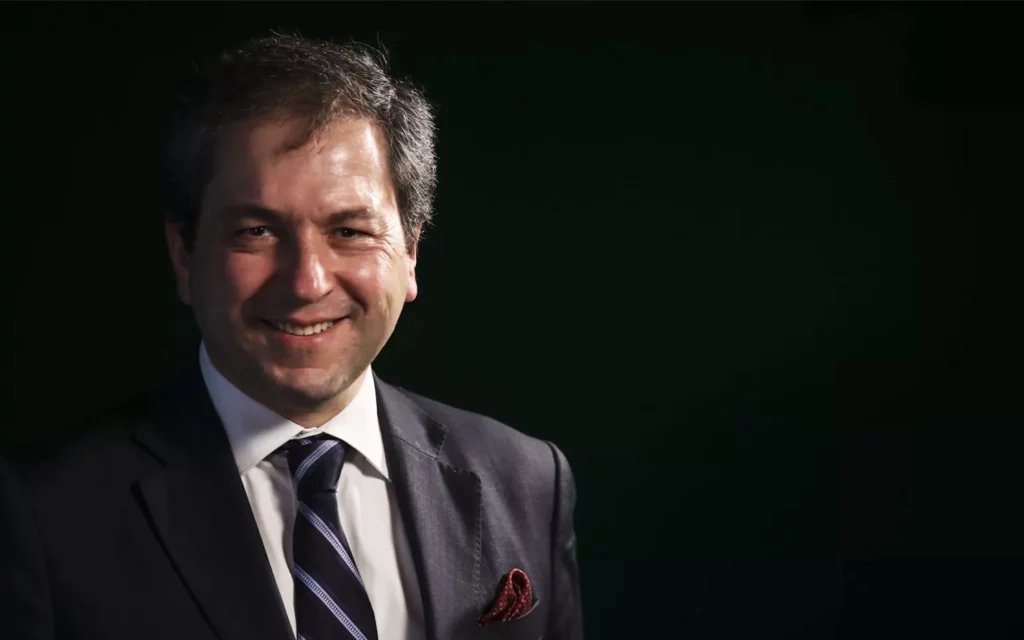Alexandre Leitão arrived in Macau in January of this year, but only officially took office at the beginning of February. The Macau SAR had just lifted the pandemic veil, and one of the first problems he encountered was the increased demand from Portuguese nationals to renew IDs and passports. The Consul says that “despite the limitations”, particularly in terms of “human resources”, the criticism of the inability to resolve these processes has been “overcome”.
“The truth is that we managed to break records in the provision of services in many respects. We estimate that by the end of this year we will have processed more than 35,000 passports and IDs. These figures are clearly higher than those we recorded in 2019 and previous years,” he points out, adding that they have managed to go from 100 bookings a day to 160, having also implemented a service for urgent cases in March. Today, this service has “little demand, which is an important indicator,” he notes.
Despite the progress made, he recognizes that there is room for improvement. “Quality is not only related to the number of people we serve. We realize that we need to improve communication with citizens, and, in this respect, we still have a lot of room to get to where we want to be. We have obvious human resource limitations in this area,” he emphasizes.
Portuguese presence
Regarding the controversy over changes to Portuguese residency applications, Alexandre Leitão reiterates that this is not an issue he wants to go into further, as he is still in negotiations with the local authorities. In this chapter, he recognizes that there have already been “positive indicators”, due to the fact that the local authorities value the mastery of Portuguese in the legal regime for qualified staff, published in May this year.
Some legal experts believe that the decision has no legal basis, but the Consul does not question its legality. In fact, he says that “it is unquestionably legal”, adding that “nothing the SAR authorities have done contradicts the Basic Law or the Sino-Portuguese Joint Declaration”.
However, he questions the “timing” of the decision, looking at the mutual interests of the SAR, China, and Portugal. “I have been expressing our views in closed-door meetings. I think we can expect positive results, in the sense that we effectively have an official position from the local and central authorities to strengthen relations with Portuguese-speaking countries,” he says.
Despite the different treatment granted to the Portuguese in the Basic Law, he says he doesn’t want to focus on the past, but on the future. Especially because of the efforts to diversify the economy, he believes that Portuguese citizens “can still play an important role”. In Macau, “we all know that the Portuguese community and citizens have been adding value and are able and ready to contribute even more to the future.”
Another issue he addresses is the presence of the Portuguese language in the region. The only issue that concerns him is Article 9 of the Basic Law, which states: “In addition to the Chinese language, the Portuguese language may also be used in the executive, legislative and judicial bodies of the Macau Special Administrative Region, and Portuguese shall also be the official language.”
For the Consul, this means that “any individual should be able to address a public service (executive, legislative or judicial) and use the Portuguese language, always receiving a reply in Portuguese”. However, he knows “that this is not always the case”.
According to the information he has, “there is a difference in this respect in the courts, between criminal cases and civil cases. These issues are visible in our daily interactions.” However, he emphasizes that the issue is not new and that there seems to be an effort on the part of the authorities to get round the problem.
Macau as a “blue hub”
Reflecting on the co-operation between Portugal and Macau in a wide range of areas, the Consul said that the region’s economic diversification brings opportunities to several Portuguese companies, especially in technology, health and tourism.
However, where he sees great potential is in the blue economy. “It seems obvious to me that we have the necessary conditions for Macau to be one of the candidates in the GBA for the creation of a blue hub.” This belief stems from his professional background, having been special envoy for climate affairs at the Portuguese Ministry of Foreign Affairs and the main organizer of the second United Nations Conference on the Oceans. But also because of the “specific conditions of Macau”, namely the fact that it is a platform between China and Lusophony, but also because it has a privileged position in the Great Bay.
“China will certainly accelerate its involvement in the blue economy (…). To this end, I worked with the Portuguese blue economy platform – Fórum Oceano – on a proposal. It’s something I firmly believe in. We could have many opportunities for cross-investment between China and Portugal, for business and scientific partnerships and for creating value and jobs based on innovation. It’s something that is also closely linked to the “1+4” strategy.



